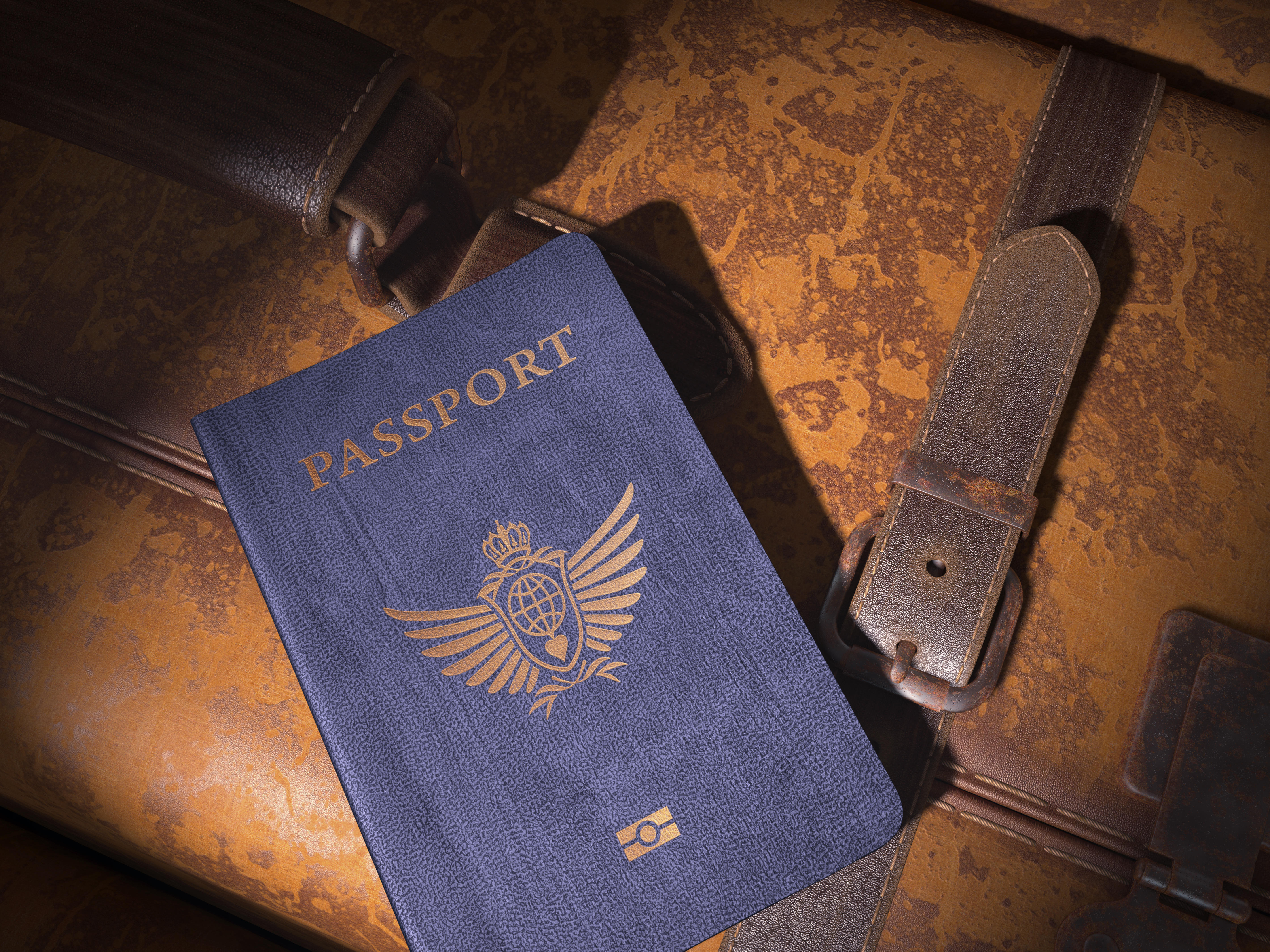I lived in Korea for 5 years. Here's what happened when I came home to Nebraska.
Rarely do people talk about what awaits when your expat life ends


A free daily email with the biggest news stories of the day – and the best features from TheWeek.com
You are now subscribed
Your newsletter sign-up was successful
I spent five years living in the clamor of Seoul, South Korea, and the smaller provincial capital of Jeonju. When I finally returned home to rural Nebraska, the silence was palpable. The negative space had an almost oppressive quality. I would look out on so much land and see nothing and be reminded that this was the same landscape that once caused homesteaders to lose their minds.
I had come home — literally, this was the Nebraska town I grew up in — to take a job at a small newspaper in Scottsbluff. The first night back, I lay awake in my childhood bedroom of my parents' farmhouse straining to hear anything, inside or out. Only the silence answered back.
Going home after so many years abroad stunned me. Everyone spoke English. Public places meant being exposed to all manner of overheard sordid details of people's lives. Simply driving down the street of my hometown I was awash in putrid nostalgia, reminded of my past at every turn. That house was where I broke up with my first girlfriend, that park where I lost my first fight. The places that I had fond memories of were just that, places with memories, filled with the vestiges of people who weren't around anymore, or weren't like they once were. I had no control over the constant flood of remembering.
The Week
Escape your echo chamber. Get the facts behind the news, plus analysis from multiple perspectives.

Sign up for The Week's Free Newsletters
From our morning news briefing to a weekly Good News Newsletter, get the best of The Week delivered directly to your inbox.
From our morning news briefing to a weekly Good News Newsletter, get the best of The Week delivered directly to your inbox.
Those who have traveled extensively or lived abroad often talk about the mind-expanding benefits of what they call your second education. Travel magazines thrive on expounding on the virtues of gaining experiences and seeing the world firsthand. It's all true. But rarely do people talk about what happens when your expat life ends.
Many returning expats are seized with "reverse culture shock." The U.S. State Department dedicates a section of its website to this phenomenon. Some of it is written expressly for military personnel, but the bulk is directed at anyone stationed overseas faced with returning to the States. It references Craig Storti's book The Art of Coming Home, which lists variables affecting reentry, including "Degree of difference between the overseas and the home culture: The greater the difference, the harder the reentry." Moving from Seoul, a city with a greater metropolitan area population of 25 million, to rural Nebraska, where my town had fewer people than a large Korean apartment complex, fit that to a T.
When you're living abroad, you develop a heightened sense of the intricacies in simple daily interactions. The cultural differences in your foreign country sharpen your perceptive ability. When you come back that antenna is still there. You pick up frequencies and signals that the people around you either can't hear or choose to ignore. The people and the place haven't changed, but you have.
Going out to eat will never be like it was. Koreans are given little buttons on their tables that when pressed send a waiter running. It's commonplace to call out for a server to come to your table and bring you more soju. In America, we sit at the mercy of the restaurant staff, unable to ask for what you want until they grace you with their presence. Koreans share food, typically eating around a common dish or dishes in the center of the table. It feels communal, social. The American way is to order a dish and eat what we ordered, rarely sharing, rarely tasting the other food on the table. It's far less fun. Then we tip, which is a terrible system but one we live with. The Korean way is better.
A free daily email with the biggest news stories of the day – and the best features from TheWeek.com
You can attempt to relate your experiences to your friends and family, but you can only start so many sentences with "In Asia…" before their eyes start to glaze over. Handing out a stack of pictures in your family living room helps, as long you're okay with some of the most formative experiences of your life reduced to the same level of interest as your second cousin's trip to Branson.
To learn how the rest of the world lives is to cure yourself of spoiling. Americans live better than the vast majority of the world. We should be thankful for clean water, for consistent electricity, for the abundance of choice in our daily lives. Too often, we willfully ignore that. We always want more. More money. More property. More status. For the many privileged among us, our daily lives are so comfortable that we obsess over trivialities to keep our minds occupied. Compare that to the river people of Cambodia or the horse tribes of Mongolia. The attendant absurdities of our privilege are obvious.
A well-traveled person sees his home country's flaws more clearly. She sees the pettiness and divisiveness in the people. She sees the beauty and the benefits, too, but the picture is more complicated. After living abroad, it's hard not to be baffled how a nation as wealthy as ours doesn't seem to mind if a serious health condition can bankrupt almost anyone, or how our prison industrial complex is a perpetual motion machine gobbling up poor people and people of color just to keep itself running.
When you live overseas in a country like Korea, which is populated with 96 percent ethnic Koreans, everywhere you go you are reminded you are a foreigner. People stare. Kids shout "hello!" from across the street. Strangers go out of their way to be nice to you. You're consistently treated like a guest.
It can be nice, but that "othering" also means this: "You're a foreigner, you'll never understand our country" or "if you don't like the way we're doing things here you can always leave." The life of a foreigner can be one of privilege, but it can also be one of no agency, no voice. It can make you yearn for your home.
But when you return home, you miss being a stranger in a strange land. You find it lonesome to be out in public and receive no extra attention or hospitality. That no one's going to give you a thumbs up just for walking down the street isn't something to complain about — to be white in Korea is to receive undeserved positive attention from a public that overvalues whiteness — but it comes as a surprise to realize that what made you uncomfortable about living in a foreign country is also something you thought was kind of nice.
Overseas I met more than a few people who tried to move back and couldn't. They realized their reverse culture shock was going to take months if not years to overcome, so they returned to their lifestyle abroad. Countries that pay English teachers well — Korea, Turkey, Taiwan — are well-trodden by these types. They stayed away long enough that moving back to their home country was just as difficult as moving anywhere else. Rootless, they decided to go where they chose.
If you're considering living in another country, here's what people will say before you leave: You'll have experiences that you'll carry with you. You'll learn to see differences in cultures. You'll benefit in ways that you won't expect.
And they're right. It will change you.
But what they won't tell you is that if you come back, you'll want different things out of life than before you left. Home won't look the same anymore. You'll learn that the experiences you gather make you who are. You carry them with you. And that's where they do the most good — with you.
Bart Schaneman is the managing editor of the Scottsbluff Star-Herald in western Nebraska. He's also the author of the collection of essays Someplace Else: On Wanderlust, Expatriate Life, and the Call of the Wild and the travelogue Trans-Siberian. Find him on Twitter @bartschaneman.
-
 Mixing up mixology: The year ahead in cocktail and bar trends
Mixing up mixology: The year ahead in cocktail and bar trendsthe week recommends It’s hojicha vs. matcha, plus a whole lot more
-
 Labor secretary’s husband barred amid assault probe
Labor secretary’s husband barred amid assault probeSpeed Read Shawn DeRemer, the husband of Labor Secretary Lori Chavez-DeRemer, has been accused of sexual assault
-
 Trump touts pledges at 1st Board of Peace meeting
Trump touts pledges at 1st Board of Peace meetingSpeed Read At the inaugural meeting, the president announced nine countries have agreed to pledge a combined $7 billion for a Gaza relief package
-
 Epstein files topple law CEO, roil UK government
Epstein files topple law CEO, roil UK governmentSpeed Read Peter Mandelson, Britain’s former ambassador to the US, is caught up in the scandal
-
 Iran and US prepare to meet after skirmishes
Iran and US prepare to meet after skirmishesSpeed Read The incident comes amid heightened tensions in the Middle East
-
 Israel retrieves final hostage’s body from Gaza
Israel retrieves final hostage’s body from GazaSpeed Read The 24-year-old police officer was killed during the initial Hamas attack
-
 China’s Xi targets top general in growing purge
China’s Xi targets top general in growing purgeSpeed Read Zhang Youxia is being investigated over ‘grave violations’ of the law
-
 Panama and Canada are negotiating over a crucial copper mine
Panama and Canada are negotiating over a crucial copper mineIn the Spotlight Panama is set to make a final decision on the mine this summer
-
 Why Greenland’s natural resources are nearly impossible to mine
Why Greenland’s natural resources are nearly impossible to mineThe Explainer The country’s natural landscape makes the task extremely difficult
-
 Iran cuts internet as protests escalate
Iran cuts internet as protests escalateSpeed Reada Government buildings across the country have been set on fire
-
 US nabs ‘shadow’ tanker claimed by Russia
US nabs ‘shadow’ tanker claimed by RussiaSpeed Read The ship was one of two vessels seized by the US military
